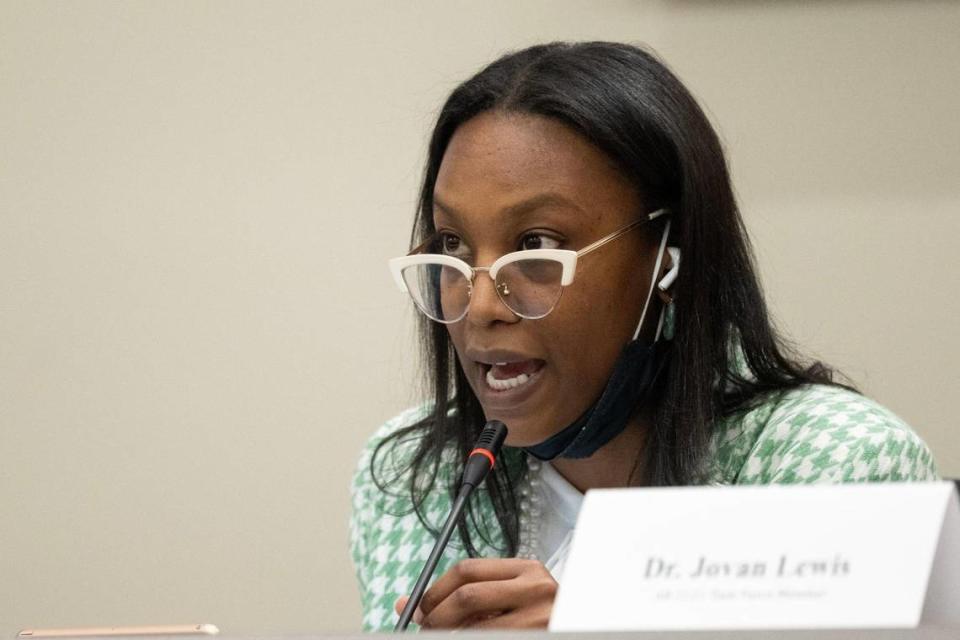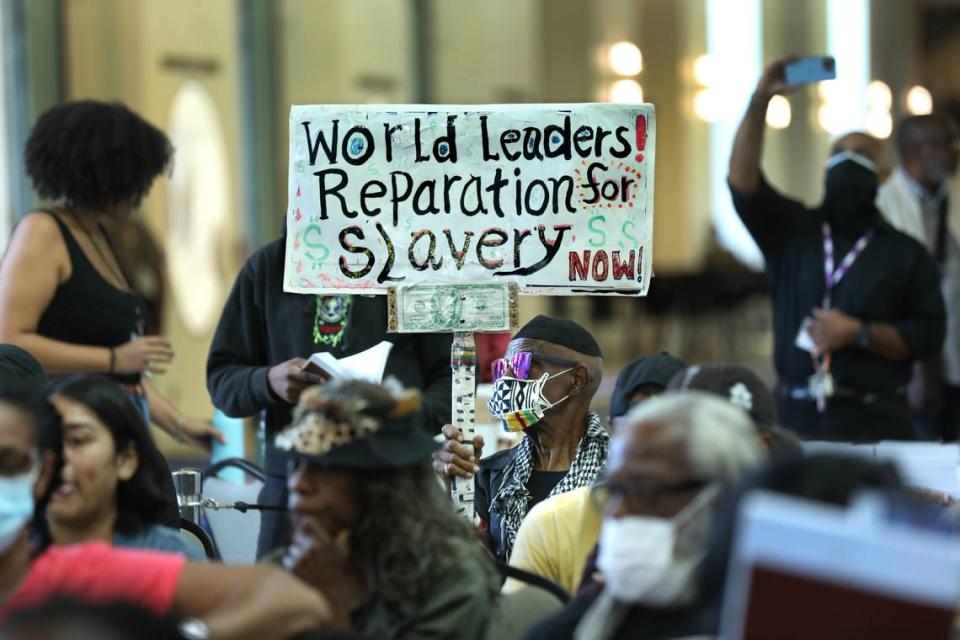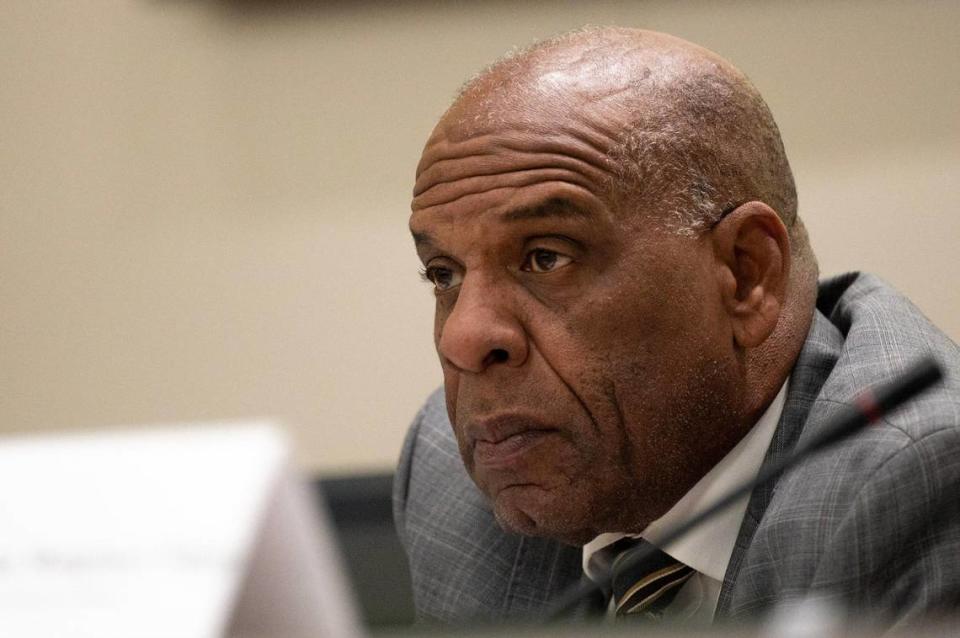California reparations task force to hold final meeting in Sacramento. What comes next?
- Oops!Something went wrong.Please try again later.
The California state reparations task force — which has been at work researching possible reparation for Black Californians who descended from slaves — is winding down after two years of work before making its final proposal to the Legislature before July.
The group will end its series of meetings aimed at compensating for harms caused by enslavement and racial discrimination practices with a hearing in Sacramento on Thursday before a final vote.
The meeting will take place between 9 a.m. and noon at the March Fong Eu Secretary of State Building’s auditorium, 1500 11th St.
In 2020, Gov. Gavin Newsom signed AB 3121, authored by then-Assemblywoman Shirley Weber, D-San Diego, to hold meetings with the public and develop recommendations for the atonement of slavery in a final report that will also be shared with the state’s Department of Justice.
During the final meeting, the reparations task force will continue to listen to public testimony as community members share their experiences with discriminatory policies that have affected their ancestors.
Task force Chair Kamilah Moore is feeling “pretty confident” in the work that the task force has put forth, giving lawmakers a road map for a first-in-the-nation bill to provide monetary compensation.
“I think there are already some elected officials who have openly stated that they are inspired by the work that we’ve done and are looking forward to introducing legislation,” Moore said. “I think as early as later this year, no later than 2024, we might see some reparations legislation.”
Task force member Sen. Steven Bradford, D-Gardena — who along with Assemblyman Reggie Jones-Sawyer, D-Los Angeles, are the only lawmakers on the panel — said the task force has identified 95 recommendations.
“This report does a great job of exposing it, shining light on it, and again showing the continual effects of slavery all the way up until today,” Bradford said. “We’re hoping to shape the legislation that will go forward.”

What’s to be considered?
One of the recommendations is likely to be an apology to Black Californians for the first part of the report that details historical atrocities and harms that Black Californians faced as a result of enslavement, racial terror, political disenfranchisement, among many other examples.
Economists have estimated that California could owe more than $1 million per Black resident within the eligible class, based on health harms, unjust property takings by eminent domain, devaluation of Black businesses, housing discrimination and homelessness, over-policing and the disproportionate mass incarceration, and other examples that have disrupted the quality of life for of Black people in California.

Another recommendation would be the creation of a California American Freedmen Affairs Agency, which could include different branches to cover different areas of reparations, such as confirming genealogy for eligibility of services.
The agency would also provide oversight for existing services and programs and implement direct services in areas where they are most needed.
“How do we take it forward? We appeal, we lobby for people of conscience, decency and goodwill,” task force Vice Chair Amos Brown said. “(We) come together and hammer out a plan to the Legislature. Like Nike said ‘Just Do It.’”
The decision ultimately rests in the hands of lawmakers and Newsom.
“That’s in their court, we’ve done our work,” Brown said. “Now it’s up to them to prove whether or not they are our partners, whether they are rational, and whether they are responsible as public policymakers.”

Bradford hopes to get something substantial accomplished at the Capitol in the wake of the report, starting with the apology.
“If we don’t pass anything of any consequences or substantial meaningful legislation, then I think it’s going to be a black eye, not only on California, but on the nation as well and it will be the continued denial and the refusal to address America’s original sin of slavery,” he said.
“California can very well be the test case and the blueprint for what can and should be done when it comes to this issue.”
If you go
What: California State Reparations Task Force final public meeting
Where: Auditorium at March Fong Eu Secretary of State Building, 1500 11th St.
When: Thursday, June 29
Time: 9 a.m. to noon

